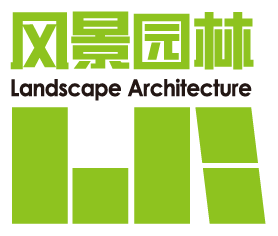Abstract:
Objective With the financial support of the government, the area of park green space has increased significantly. On the one hand, the construction and maintenance of large park green spaces require a large amount of continuous investment; on the other hand, the current urbanization development in China has shifted from incremental construction to stock renewal, which requires the improvement of the quality and efficiency of park green spaces and the enhancement of their service functions. Through relatively thorough operation, Beijing Wenyu River Park has not only maintained the quality of the park’s green space and improved the quality of park services, but also alleviated the financial pressure on the management and maintenance of the park’s green space, becoming a model of park operation in Beijing. Analyzing its experience in socialized operation of parks based on “nurturing parks with parks” is of great reference significance for exploring the improvement of quality and efficiency of urban parks.
Methods The Chaoyang section of Wenyu River Park in Beijing is selected as the research object, and a case study method combining field investigation, questionnaire survey and in-depth interview is adopted. This research sorts out the current operation content and operation status of Wenyu River Park through field investigation, and obtains its operation experience through in-depth interviews with the person in charge of the Chaoyang section of Wenyu River Park. In addition, through questionnaire survey, the research obtains the basic situation of the park’s visitors, such as the age of the respondents, the type of their companions, as well as their educational level, income and other characteristics. Before the implementationn of in-depth interviews, an interview outline is drafted simultaneously by combining academic papers, media reports, planning documents and other materials. The interview statement and the outline of the interview content are provided to the interviewees in advance, and the interviews are conducted offline, with a duration of approximately 1.5 hours.
Results Through in-depth interviews, the research learns about the experience and details of Wenyu River Park in its practice of socialized operation. The socialized operation practice of Wenyu River Park generally presents the following characteristics: Diversified operation entities, professional operation contents, market-oriented operation mechanisms, and in-depth community participation. Through the questionnaire survey, the basic characteristics of the respondents in Wenyu River Park are obtained. The visitors to Wenyu River Park generally show the characteristics of being young, family-oriented, highly educated and high-income, and have a strong demand for parent – child family activities.
Conclusion As a representative case of socialized operation of urban parks, Wenyu River Park takes state-owned enterprises as the operation and management platform, private enterprises as the cell-level content, and government agencies as the supervision and assistance mechanism, forming a multi-subject operation model. Under the premise of ensuring the provision of public welfare services, the park has brought market innovation and vitality into its operation. The professional operation entity has established a precise positioning for the park and constructed a high-quality service content matrix. The market-oriented operation mechanism ensures that the operation projects obtain reasonable returns in a market-oriented manner and balances the cost expenditure of the park. The in-depth community participation mechanism has encouraged residents to deeply engage in the development of the park and promoted social integration. The operation practice exploration of Wenyu River Park shows that the socialized operation of urban parks can effectively improve the service level of park green spaces and improve the comprehensive social benefits of the park industry, while alleviating the financial pressure of local governments to a certain extent. Meanwhile, the profits from park service projects can reduce financial expenditures to a certain extent, although to a limited extent — as can be seen from the publicly available financial data, Wenyu River Park is still receiving financial subsidies from the government. Of course, from the practical experience at home and abroad, even if the income from the socialized operation of parks cannot fully offset the government’s investment, it can still effectively reduce the governments financial burden. At present, the socialized operation of urban parks in China is still in the exploratory stage. In the practice of Wenyu River Park, issues such as the balance between public welfare services and revenue services, the balance between ecological protection and economic revenue generation, the lagging policy and legal system, the lack of operational incentive mechanisms, the insufficiency of administrative management coordination mechanisms, the limitations of operational space and sustainability, and the shortage of park operation and management talents, urgently require the joint exploration of solutions by the whole society.

 下载:
下载:
